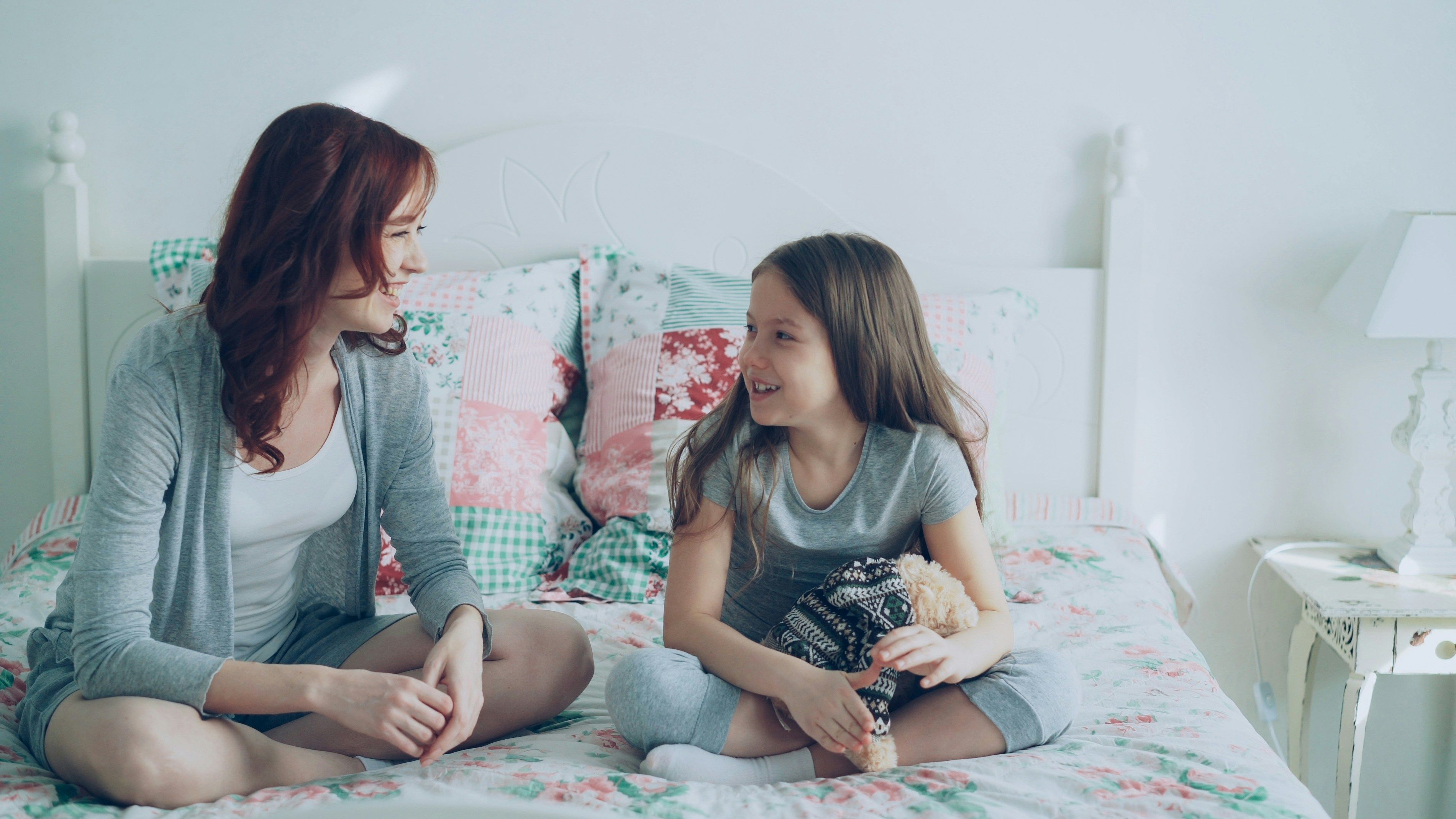Our Tips On How to Explain Dementia to Your Child
Watching someone you love change because of dementia can be confusing, even for adults. But when children notice these changes in a grandparent or other loved one, it can feel scary, sad, or just plain strange. As adults, it’s our job to help them make sense of what’s happening.
This guide offers gentle, practical advice for talking to children about dementia, especially if you're supporting a loved one living in a care home like those at Beechcroft. With kindness and honesty, we can help young hearts understand, stay connected, and feel secure, no matter how hard the journey may be.
Understanding Dementia Yourself First
Before you sit down to explain dementia to a child, it’s important to feel comfortable with what it really means. Dementia isn’t just forgetfulness; it’s a condition that affects the brain, and over time, it changes how someone thinks, feels, talks, and behaves.
There’s no need to be an expert, but having a basic, age-appropriate understanding will help you stay calm and clear. If you’re unsure, trusted sites like Alzheimer’s Society or the NHS dementia guide can help.
Tailoring the Conversation to the Child’s Age
Every child is different; their age often shapes how much they can understand.
Very young children (under 5): Keep it simple. “Grandma’s brain is a bit poorly, and it makes her forget things.”
Primary school children (5–11): You can offer a little more detail. “Dementia makes it harder for Grandpa to remember names and places. It’s not anyone’s fault.”
Teenagers: Teens may already sense more and appreciate honesty. You can talk about how dementia progresses, how it’s affecting your family, and ways they can help.
Whatever their age, speak gently, and let them set the pace.
Using Simple and Honest Explanations
Children can sense when something is being hidden, and that can feel scarier than the truth. Use clear, child-friendly language and avoid medical terms unless they ask.
Here are a few examples of how to explain:
- “Grandma's brain is sick, and that’s why she forgets your name sometimes”
- “Dementia can make people confused or upset. They’re not angry at you, they’re just feeling mixed up inside.”
- “It’s not catching, and you didn’t do anything to cause it.”
Stick to what the child has noticed. If their loved one repeats the same story several times, you could say: “That’s because her brain can’t make new memories as well as it used to.”
Encouraging Questions and Feelings
Children may ask big questions: “Is Grandma going to die?”, “Will I get it too?”, “Why doesn’t she know who I am?”
You don’t need all the answers. What matters most is that you let them talk, listening closely, and reminding them it’s okay to feel however they feel.
Some helpful responses could be:
- “That’s a great question. I’m really glad you asked.”
- “It’s okay to feel sad, or even angry.”
- “I don’t know all the answers, but I’ll always tell you the truth.”
This helps your child feel safe and supported, even if the world around them feels uncertain.
Helping Them Stay Connected
One of the hardest parts for children is feeling like they’re losing their special bond. But even as dementia changes a person, love and connection can still live on in beautiful, simple ways.
Here are a few age-appropriate ways for children to stay connected:
- Drawing pictures or making cards together.
- Looking at photo albums and telling stories.
- Singing favourite songs, especially ones from the past.
- Gentle visits, even if they’re short, just to hold hands or smile.
Small rituals like bringing a treat, sharing a toy or reading a short book can go a long way in keeping that bridge between hearts strong.
Offer Steady Reassurance (for them and for you)
Dementia can make the world feel unpredictable, especially if a loved one no longer recognises a child they used to adore. Some children may quietly blame themselves or worry that they’re not loved anymore.
Be sure to gently reassure them:
- “Grandad loves you very much, even if he forgets your name.”
- “You are not the reason he’s acting differently.”
- “It’s not your job to fix this, you’re already helping just by being kind.”
And most importantly: remind them that they’re not alone. That this is hard for grown-ups, too. And that your family is in this together.
Talking to your child about dementia is never easy. But with honesty, warmth, and patience, it can be a deeply bonding experience. It can help them grow in compassion, resilience, and understanding.
Here’s what to remember:
- Keep your explanations simple and honest
- Let them ask questions, even the hard ones
- Help them feel their feelings are okay
- Find ways to keep the connection alive
- Remind them they are loved, safe, and supported
And if you’re ever feeling unsure or overwhelmed, you’re not alone either. There are places you can turn to for support, answers, and a listening ear.
Caring Support at Beechcroft Care Homes
At Beechcroft Care Homes, we understand how dementia affects the whole family, not just the person living with it. That’s why we create environments full of kindness, patience, and dignity.
If you’re looking for compassionate, professional care for a loved one, we invite you to explore our care homes in Torbay and discover a place where families can feel supported every step of the way.
Resources for Further Help


